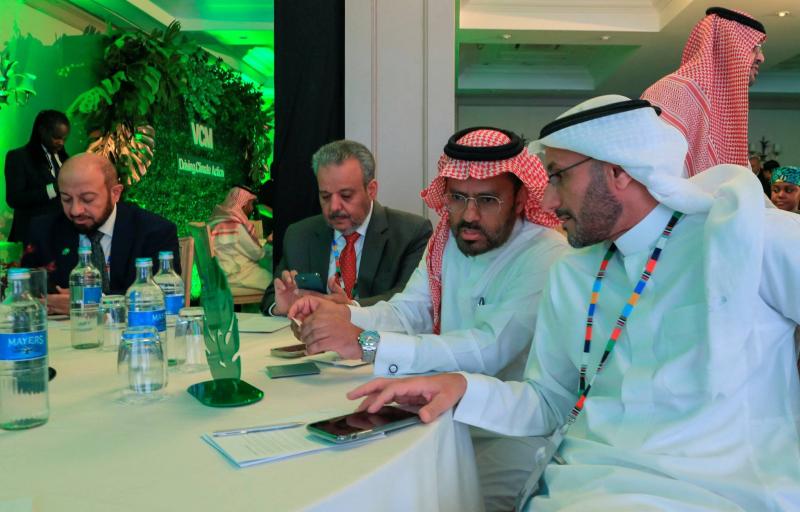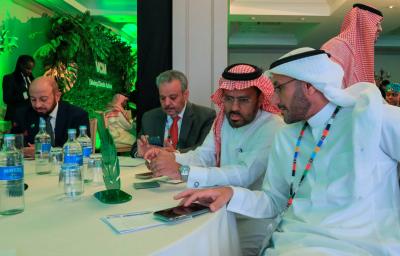Saudi companies purchased over 2.2 million tons of carbon credits on Wednesday, after the Kenyan capital Nairobi hosted what organizers described as the largest sale of its kind in the world. The demand for carbon offsets, which are generated through projects like afforestation or the use of clean cooking fuel, is expected to grow as companies seek to use credits to help meet their net-zero emission targets.
The regional voluntary carbon market company that organized the auction stated that around 16 Saudi companies, including Aramco and the Saudi Electricity Company, paid 23.50 Saudi riyals ($6.27) per metric ton of carbon credits. The organization noted that the credits sold in the auction are verified and generated from projects that avoid emissions using sustainable technologies or remove carbon from the atmosphere.
The company, which held its first auction in Riyadh in October to sell 1.4 million tons of carbon credits, selected Kenya to highlight the need for investments in climate projects. In a statement to Reuters, the CEO of the regional voluntary carbon market company, Riham Al-Jizi, mentioned that Saudi Airlines was among the participants, as the use of credits includes offsetting airline emissions. Al-Jizi said, "We are here to deliver on our commitments."
It is worth noting that the Saudi Public Investment Fund and the Saudi Stock Exchange established the regional voluntary carbon market company, which indicated that about 70 percent of the credits in Wednesday's auction were generated from projects in Africa. The project includes supplying improved clean cook stoves in Kenya and Rwanda, and renewable energy initiatives in Egypt and South Africa.
Although Kenya contributes less than one percent to global annual emissions, it has been severely impacted by climate change in recent years, experiencing devastating droughts that have wiped out crops, destroyed wildlife, and led to livestock deaths. Companies view the voluntary carbon market as an important part of helping them achieve their environmental goals, as it allows investment in projects that do not generate greenhouse gas emissions.
With many companies targeting net-zero emissions by 2050, demand for offsets is expected to grow, although some companies have lost interest in achieving this due to concerns about the quality of certain projects, prompting calls from climate advocates and industry workers for stricter rules.
Consultants at McKinsey have stated that the annual global market for voluntary carbon credits, valued at around $2 billion in 2021 according to the non-profit Ecosystem Marketplace, could reach $50 billion by 2030. Critics of carbon markets have previously cited concerns like low transparency, limited credit supply, and questions regarding project quality. Al-Jizi rejected these criticisms, asserting that the regional voluntary carbon market company works with two separate independent expert teams to evaluate projects contributing credits for sale. She stated, "If we find anything concerning, we immediately exclude it from the auction."




